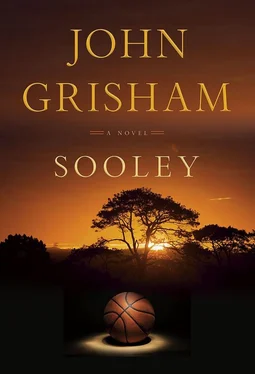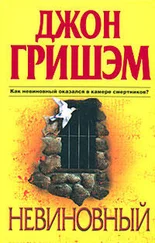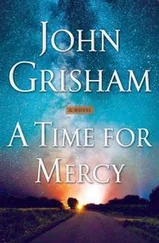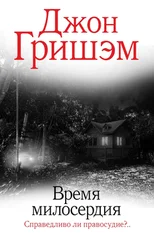“Sorry. Cocky, overrated. Just settle down.”
Riak missed the first, made the second, and they were on the board, but behind 12–1. At five minutes, Croatia sent in three subs, but Ecko had no plans to substitute. At six minutes, and trailing 16–1, he called his only time-out of the period. He sat down the five starters, smiled at them though they did not return the smiles, and said, “I assume you guys plan to snag a field goal or two here in the first period.”
All five looked at their Reeboks.
The tournament was about winning and losing, and national pride, and bragging rights, and all that. It was about the folks back home, watching, when able, the games on a large-screen television hung outside a town hall and yelling at the sight of a player they knew. It would be a notch in Ecko’s belt, were he to win or place, something to add to his résumé as he dreamed of a head coaching job. But it wasn’t called a showcase for nothing. It was more about the players and the scouts there to watch them, and boys’ dreams of playing in America.
Ecko wanted to win as badly as any coach, but beyond that he wanted his kids to have more opportunities. So, he encouraged them to take chances, to shine. He loathed selfish players and promised to bench anyone for taking a terrible shot, but he wanted every kid to look good.
Awino Leyano put back a miss, stuffed it hard, and there was the first field goal. Riak Kuol blocked a shot at the stripe, swatted the ball to Samuel, who sprinted downcourt but pulled up. When the defense relaxed he was wide open and nailed a 25-foot jumper. It was gorgeous, and Ecko glanced at Frankie. From way behind the arc, Samuel jumped high, though unguarded, and released the ball with near perfect form.
After ten minutes of frantic play, the buzzer sounded — the first period was over. Croatia led 21–15. C Squad was drained, drenched, ready to sit for a few minutes. They watched B Squad struggle with the same jitters and fall behind by 12.
Samuel enjoyed the break, the cold water, the role of a temporary spectator. He had scored two buckets, had a steal and only one turnover. Not a bad first outing. He caught his breath and looked at the scouts sitting across the way behind the scorer’s table. Half were white, half were black, most were young, under forty, all dressed casually, not a single necktie or suit anywhere. Most wore polo shirts with school colors and logos, and from across the court Samuel could spot assistant coaches from UNC, Syracuse, Kansas, and Oregon. They laughed and talked and had only a casual interest in the game. They all seemed to know each other. Behind them was a row of video cameras, and Ecko had explained that all games are filmed and any coach can get all the tape he wanted.
What would it take to make an impression? That was the question every player was asking himself. For Samuel, it was speed, quickness, his extraordinary vertical leap, and the fact that he was growing like a wild weed.
After the second period, Croatia was up 40–30. Samuel and C Squad were rested and ready to go, but they were done for the day. In the last period, Mr. Dak Marial established himself as a true All-American and took charge of the game. When Alek Garang hit two straight threes, the Croatians ventured out from their suffocating zone and Dak went to work underneath.
Samuel watched the game and cheered for his team, but he also kept an eye on the scouts. With Dak in the game, along with Koosh Koosh and Alek Garang, the scouts were showing more interest. All had cell phones and worked them constantly.
With a minute to go, Alek tied the game at 52 with another three-pointer, and the South Sudan bench went wild. Both teams missed bad shots, and with 18 seconds to go Riak was called for a shooting foul. With an exuberant wide grin he asked the referee, “What?” The ref wanted to tee him up but relaxed and warned him. The Croatian guard hit both free throws, and Alek missed a last-second shot.
Game over. Croatia 54, South Sudan 52.
No team was expected to go undefeated. The year before, Ecko had taken a 5–2 team to the finals and almost won it all. In the locker room, he reminded the team of this and told them to shake it off. They had six more games and shouldn’t worry about the first one.
They showered, changed, and went back to the court to watch one of the American teams play the Italians.
Game Two: South Sudan versus Italy
As promised, Ecko and Frankie retooled the squads and started C against the Italians, who had lost by 20 to a hotshot American team. The game was at CFE Arena, on the UCF campus, and it was by far the finest basketball court any of the South Sudanese had ever seen. There were almost 10,000 seats, and though most of them were empty they still made for an impressive sight.
Dak Marial was on C, along with a 6'6" shooting forward named Jimmie Abaloy, a Sudanese American who had lived seventeen of his eighteen years in Trenton, New Jersey. He started the game nicely with three consecutive long-range jumpers, and the Italians never caught up.
Samuel played the second period with B Squad and missed all three of his shots. After two games, it was clear to him that he was the third-best point guard, after Alek Garang and Abraham Bol. But, at 6'4" and growing, he wasn’t sure how long he would be considered a point guard or even a shooting guard. Ecko wasn’t sure either.
After a 13-point win over Italy, the players showered and watched the next game. Each took up at least two seats and they enjoyed popcorn and sodas, just like real fans. Four players from the U.K. stopped by and said hello, and soon they were making friends. Two of the Italians saw the crowd and came over. One had signed with Texas Tech, the other committed to Central Michigan, and their English was quite good.
An assistant coach in an Auburn shirt appeared and said hello to Jimmie Abaloy. They stepped away, walked to an upper level and sat in a section all alone. They talked and laughed for a while. Samuel watched them with great envy.
So, that’s how it happens.
Game Three: South Sudan versus Ukraine
It was Thursday, July 16, the day the players would remember because all eight teams would play in four straight games at the Amway Center, the NBA palace that was home to the Magic. Ecko and his team arrived early and were given a tour of the cavernous arena. They walked around the empty court and soaked in the incredible atmosphere of basketball heaven. Samuel tried hard to convince himself that he was standing on the same wood where LeBron had played, and Kobe, Shaq, Niollo, and Steph Curry. Their guide led them off the court, through a tunnel, and they stopped at a wide door with the words “Magic Locker Room” painted in the team’s colors. She opened the door and they stepped inside for the highlight of every tour. The locker room was hard to grasp — wide and round, wood-paneled with thick, luxurious blue and silver carpet. There were fifteen lockers in a semicircle, each wide and deep enough to hold a small vehicle. There were luxury recliners, large television screens, anything a player could really want. Down the hall was a team room, a television room, a cafeteria, a training room, a weight room, a media room, and a shower with enough private stalls to accommodate several teams of sweaty players. And there were other rooms that they didn’t have enough time to explore.
After the locker room, they rode an escalator to the second level and strolled along an empty concourse that looped around the entire court. They stopped at the luxury suites, one with an open door, and were invited to take a look from the corporate view. A hostess fixed them sodas and offered snacks and they were enjoying the fine seating when a vice president popped in and said hello. He welcomed them to the home of the Magic, and to Orlando, and to America, and said he was looking forward to the afternoon’s games. It was almost noon and he asked if they’d had lunch. Ecko said they had not, and the VP spoke to his assistant and arranged lunch back in the locker room, in the players’ cafeteria. He told them to finish their tour and he’d meet them down there in half an hour.
Читать дальше












